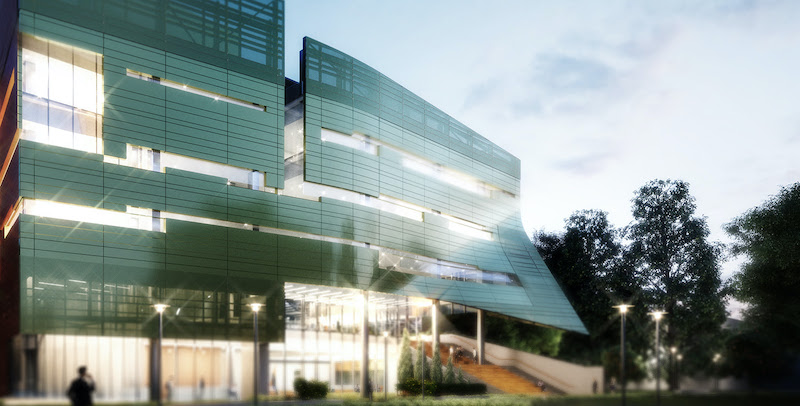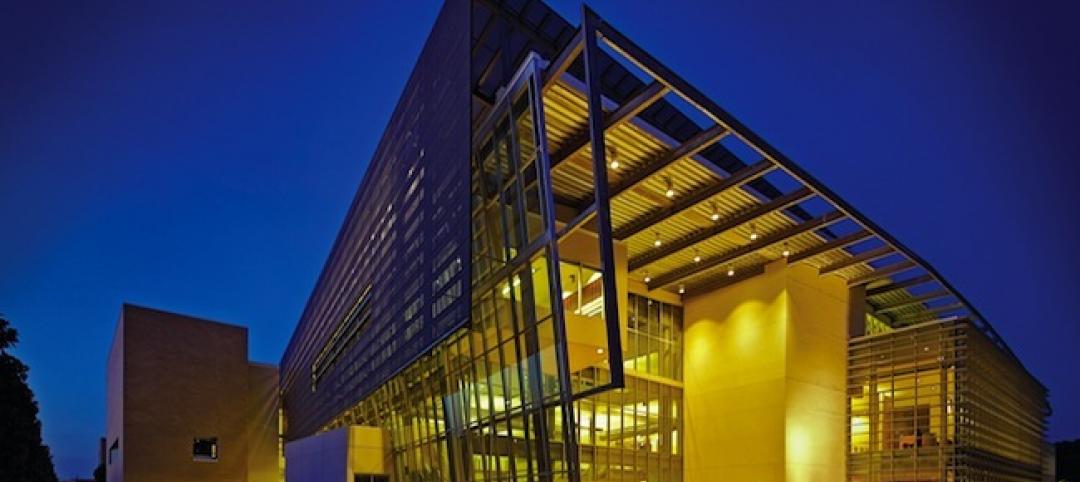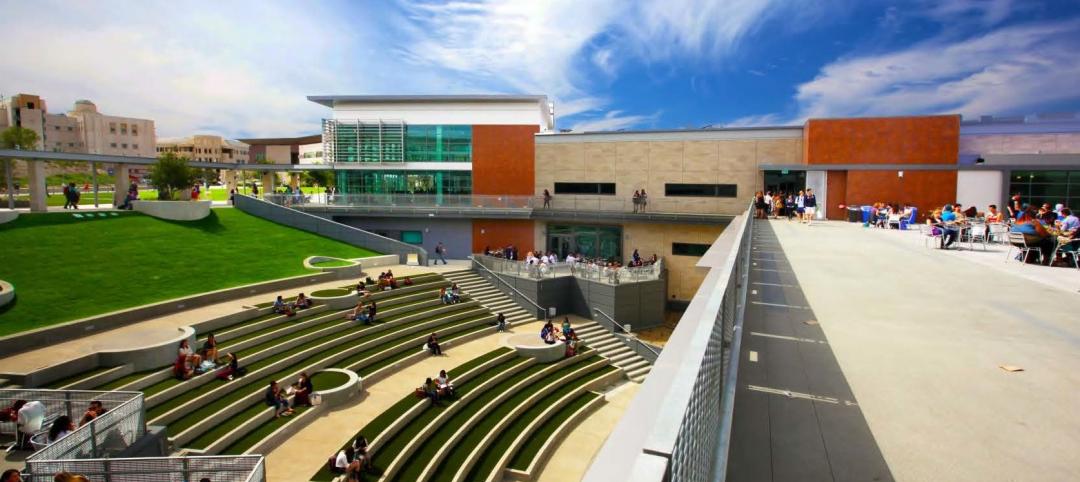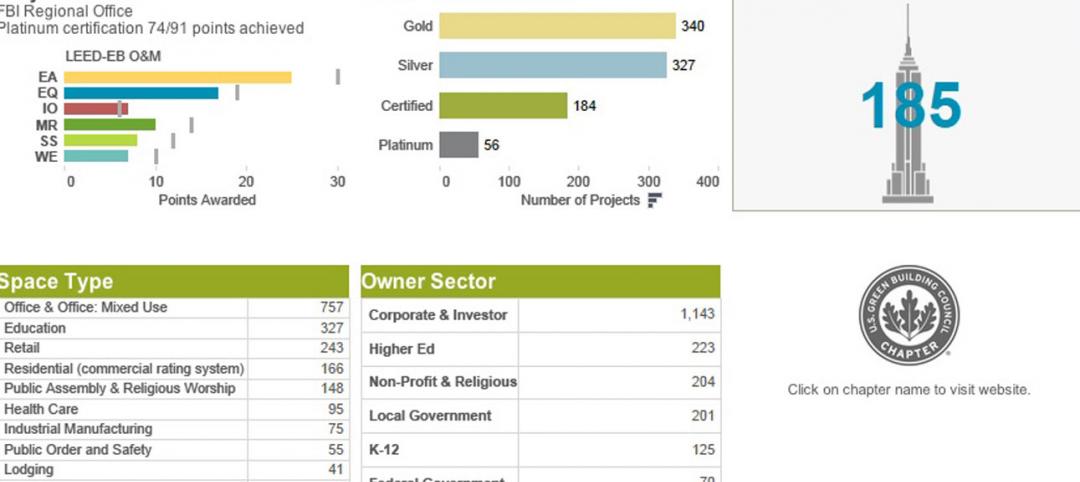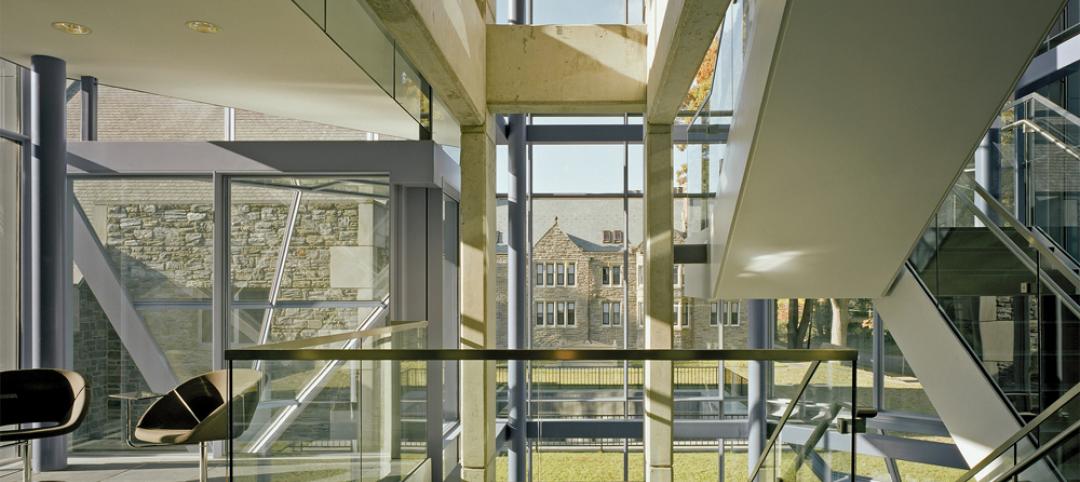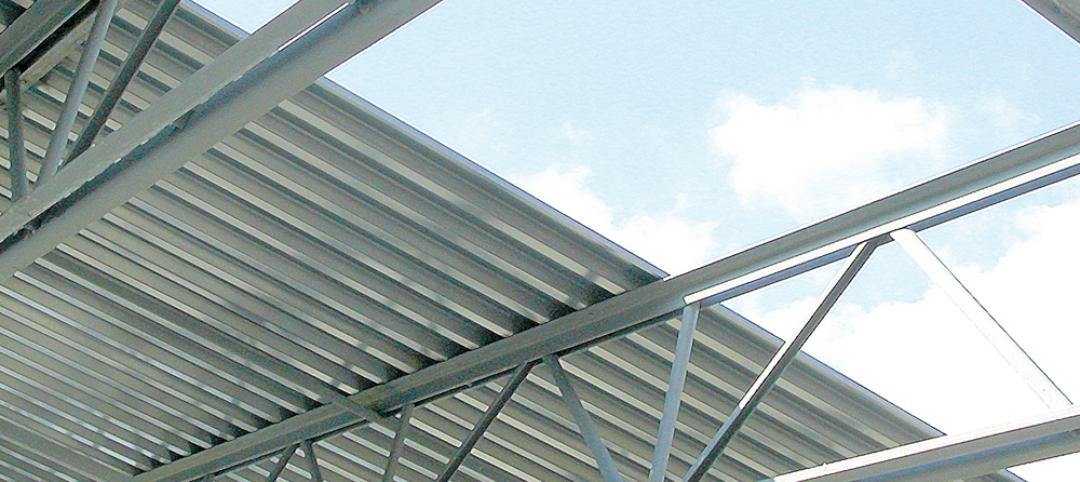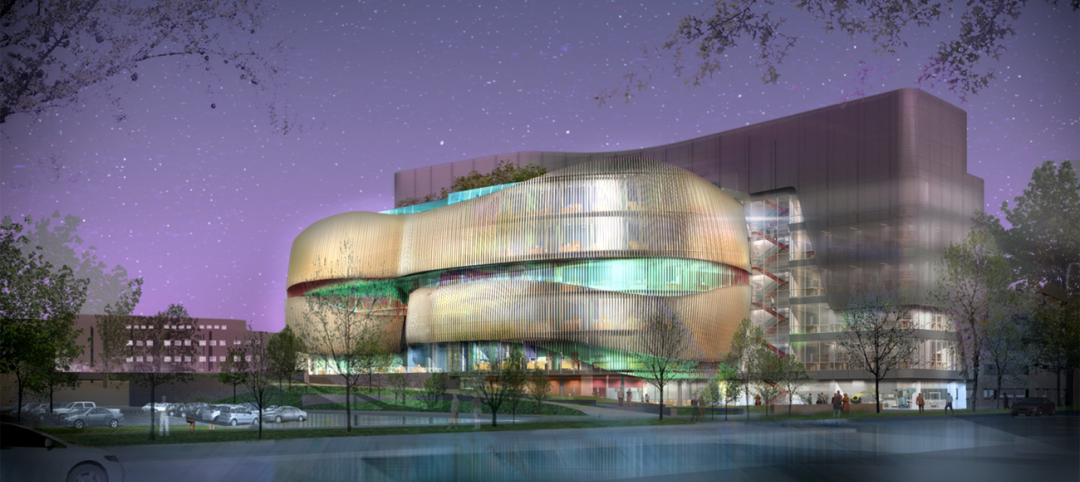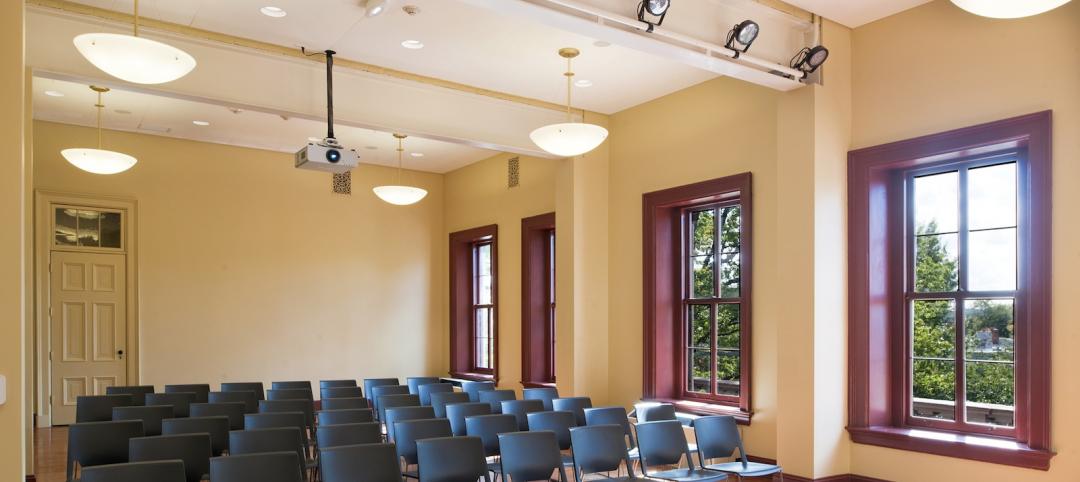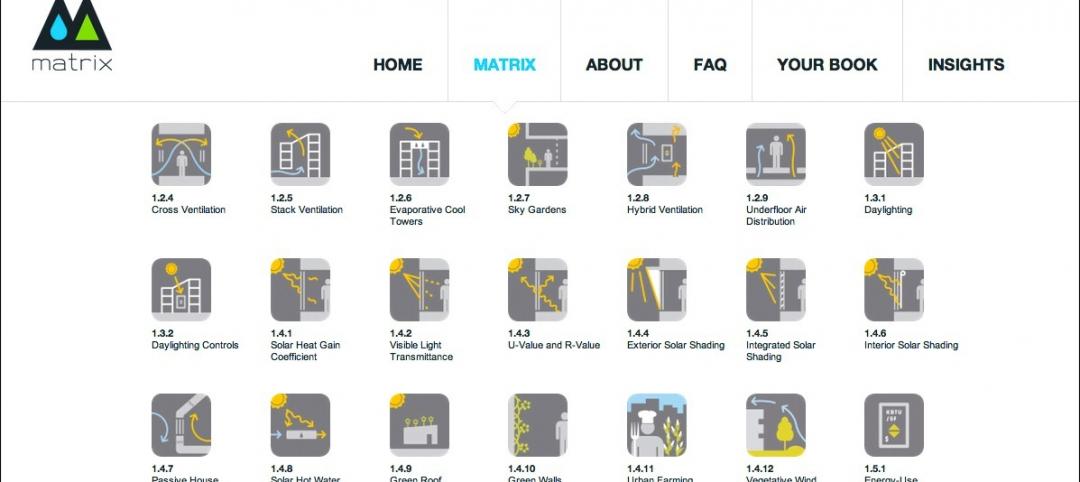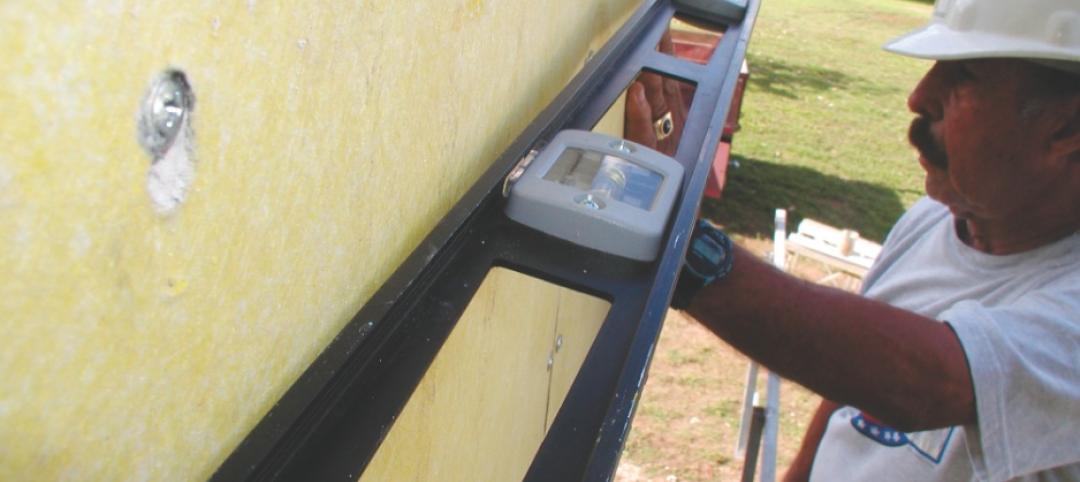Located on the University of South Florida’s (USF) Tampa campus, a new purpose-built facility for the Judy Genshaft Honors College has broken ground.
The five-story, 85,000-sf building will provide a new home for the Honors Program by providing flexible spaces that foster and enhance interdisciplinary exchange between students, faculty, staff, and the broader USF community.
Highly visible from USF’s central campus and accessible via multiple entry points, the new building’s design emphasizes spaces that promote community engagement, collaboration, and creativity. A centrally located atrium anchors the building. The atrium connects all user into a single spatial experience and is lined with learning lofts that encourage interaction and collaboration.
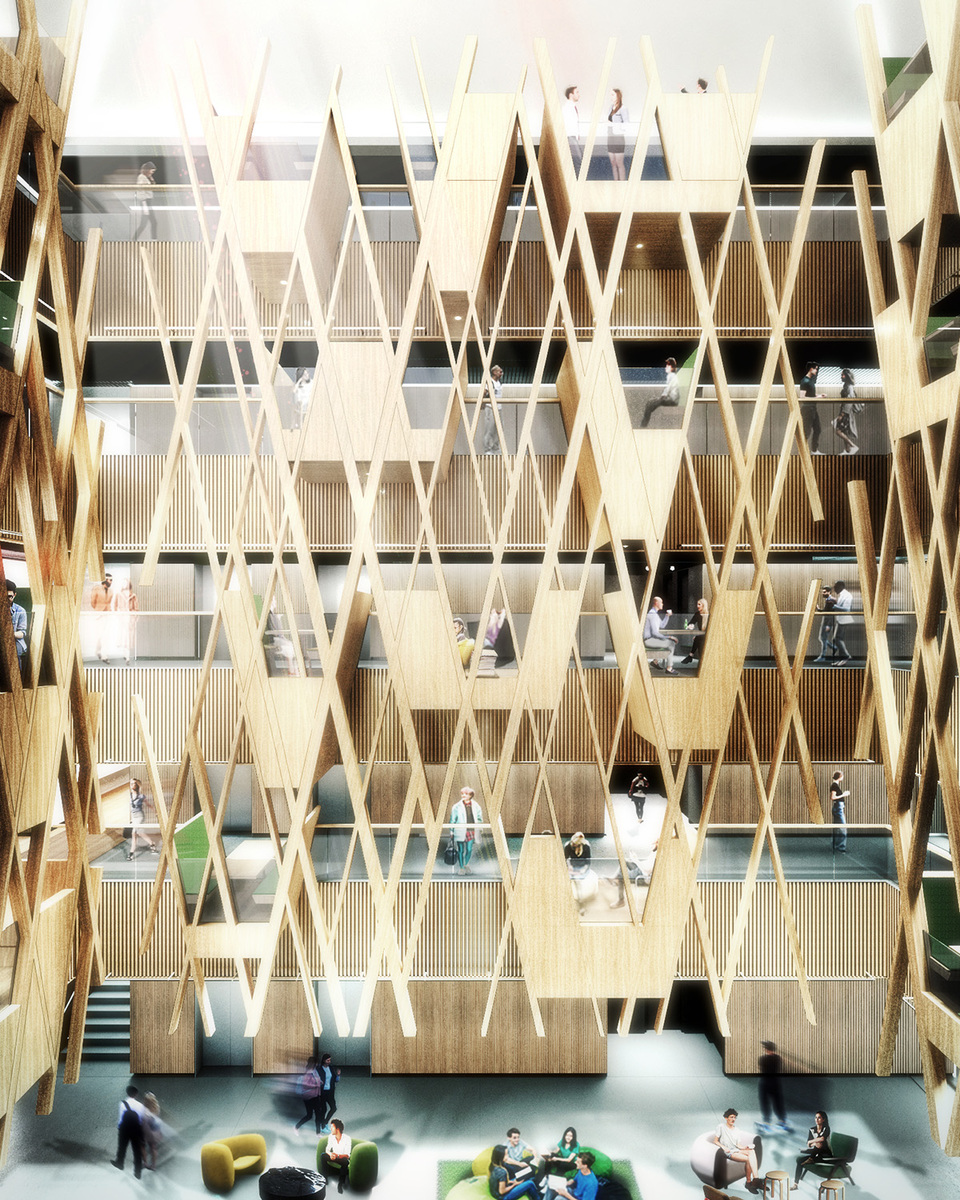
Flexible spaces adjacent to the atrium on the ground floor can be opened and combined to accommodate large-scale events. The second floor features an exterior, shaded terrace that is accessible from the inside and outside of the building and serves as an outdoor study and meeting space.
The lower-form of the five-story building promotes greater pedestrian activity, which in turn increases the frequency of casual encounters and informal meetings critical for interdisciplinary collaboration.
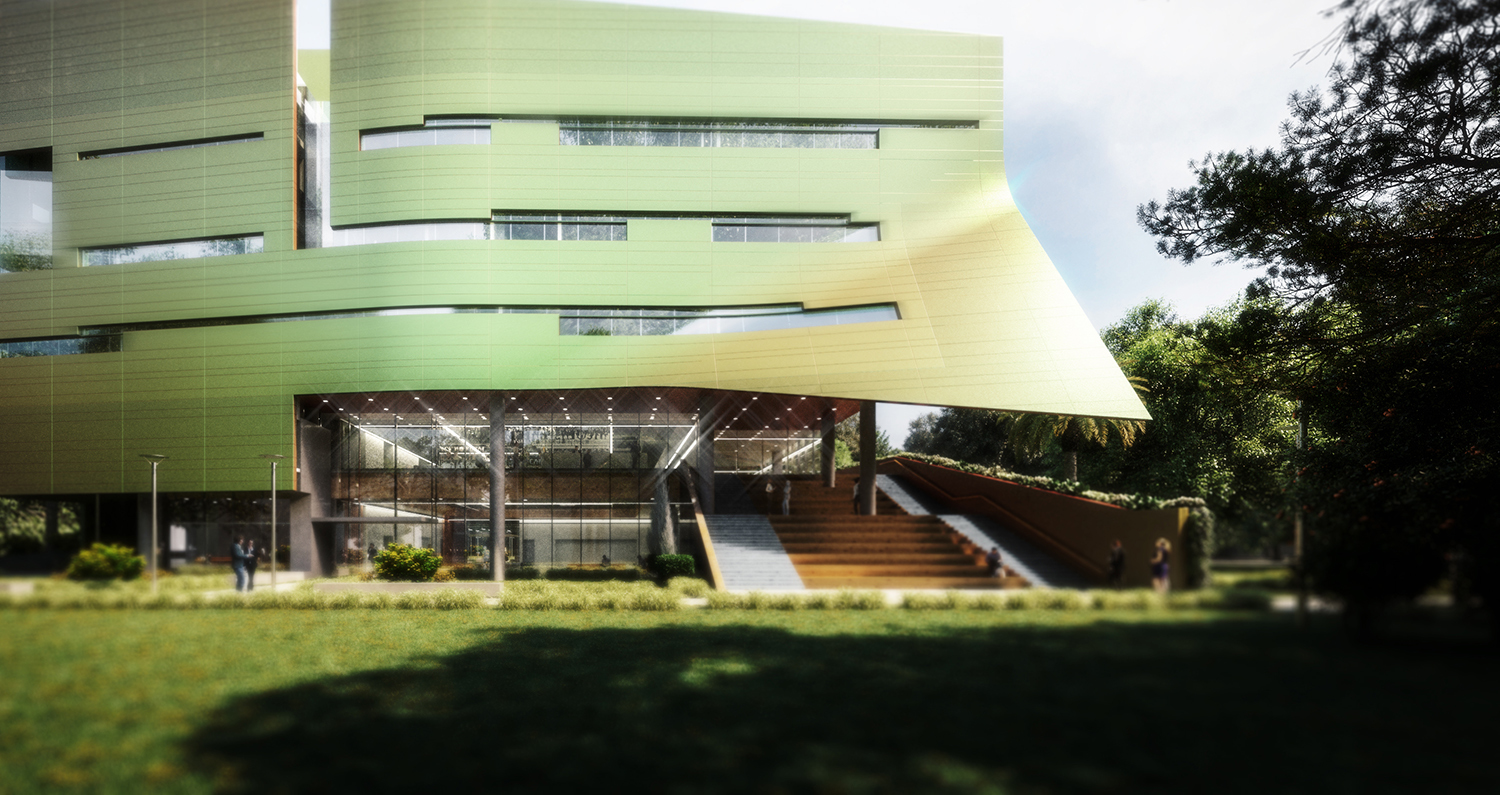
The building also includes classrooms, labs, study areas, offices, and a publicly accessible cafe. The new, purpose-built facility will not only provide the Honors College with a free-standing building tailored to its program and strategically woven into USF’s campus, but will also allow it to accommodate an additional 600 students, bringing its total number of students to 3,000.
Construction on the facility is slated for completion in late fall 2022.
Related Stories
| May 10, 2014
How your firm can gain an edge on university projects
Top administrators from five major universities describe how they are optimizing value on capital expenditures, financing, and design trends—and how their AEC partners can better serve them and other academic clients.
| May 1, 2014
First look: Cal State San Marcos's posh student union complex
The new 89,000-sf University Student Union at CSUSM features a massive, open-air amphitheater, student activity center with a game lounge, rooftop garden and patio, and ballroom space.
| Apr 29, 2014
USGBC launches real-time green building data dashboard
The online data visualization resource highlights green building data for each state and Washington, D.C.
Smart Buildings | Apr 28, 2014
Cities Alive: Arup report examines latest trends in urban green spaces
From vertical farming to glowing trees (yes, glowing trees), Arup engineers imagine the future of green infrastructure in cities across the world.
| Apr 16, 2014
Upgrading windows: repair, refurbish, or retrofit [AIA course]
Building Teams must focus on a number of key decisions in order to arrive at the optimal solution: repair the windows in place, remove and refurbish them, or opt for full replacement.
| Apr 9, 2014
Steel decks: 11 tips for their proper use | BD+C
Building Teams have been using steel decks with proven success for 75 years. Building Design+Construction consulted with technical experts from the Steel Deck Institute and the deck manufacturing industry for their advice on how best to use steel decking.
| Apr 8, 2014
Science, engineering find common ground on the Northeastern University campus [slideshow]
The new Interdisciplinary Science and Engineering Building is designed to maximize potential of serendipitous meetings between researchers.
| Apr 2, 2014
8 tips for avoiding thermal bridges in window applications
Aligning thermal breaks and applying air barriers are among the top design and installation tricks recommended by building enclosure experts.
| Mar 26, 2014
Callison launches sustainable design tool with 84 proven strategies
Hybrid ventilation, nighttime cooling, and fuel cell technology are among the dozens of sustainable design techniques profiled by Callison on its new website, Matrix.Callison.com.
| Mar 20, 2014
Common EIFS failures, and how to prevent them
Poor workmanship, impact damage, building movement, and incompatible or unsound substrate are among the major culprits of EIFS problems.


